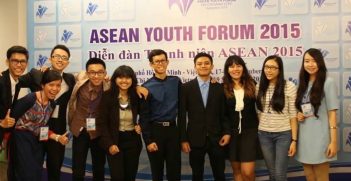Boko Haram-ism: Beyond Jihadism

The misguided focus on Boko Haram as a jihadist terrorist group could prevent Nigeria from addressing the broader socio-economic environment within which it operates.
Boko Haram has taken around 17,000 lives since 2009 and has widened its catchment area to include Cameroun, Niger and Chad. In June 2014, the terrorist group went a step lower in using captive women and children as suicide bombers. It got worse – in April this year, the group’s leader Abu-Bakar Shekau declared Boko Haram as the ‘Islamic State’s West Africa Province’ (in Arabic: Wilāyat Gharb Ifrīqīyyah) to the immediate approval of Abu-Bakr al Baghdadi.
In the face of these events, one might ask: how can Nigeria, a central military and economic power in sub-Saharan Africa, struggle to defeat a band of heretics in its northeastern corridor? The answers to this very rational geopolitical question will likely peel off layer after layer of political paradoxes in the country’s socio-political story. The fundamental disconnect between Nigeria’s regional relevance, and its strategic helplessness in confronting Boko Haram, may explain why the insurgency has emerged, thrived and wrought havoc. It is conceivable that the vicious advance of Boko Haram is the result of Nigeria’s penchant for looking too far into the distance for a solution to a problem that may be solved by sheer political honesty.
Nigeria has, to a significant extent, ignored the fact that terrorism, especially on the African continent, is as much a question of political economy and history as a question of ethno-linguistics and religion. To understand Boko Haram, Nigeria may have a reason to blame jihadism, but the country must also critically examine the environment within which the group operates.
A survey of Nigerian insurgencies in the last few decades shows that such political movements against the state are mostly triggered by socio-economic issues, while ethno-linguistic and religious identities are used to mobilise support for the cause. In Africa generally, groups like Joseph Kony’s Lord’s Resistance Army (LRA) and Omar Mukhtar’s Libyan Mujahedeen, amongst many, have used the religious construct to inspire and mobilise their movements. Yet the root of their struggles has always been socio-political grievances of the time. In the case of the LRA, it was postcolonial political mismanagement. In the case of the Libyan Mujahedeen, it was colonial subjugation of a people bent on being free.
Boko Haram’s ecology draws on both the colonial and postcolonial questions. The shadow of colonialism in the current violence is historical, culminating in the group’s narrative that point to economic and cultural injustices under British rule. The postcolonial effect is caused by the failure of the Nigerian state to uphold the socio-economic rights of its people. Socio-political short-termism in the postcolonial Nigerian state has resulted in a state at war with its own people. These economic grievances inspire dissent, which are empowered through the mobilising effect of identities that may be religious or ethno-nationalistic. Of course, this point does not dismiss the role of the jihadi narrative in the existence of Boko Haram. It rather puts jihadism in its proper place and consequently provides a clearer roadmap on how the insurgency should be understood and defeated in the long-term.
A practical approach to understanding and defeating Boko Haram might be to simplify the ecological factors of the insurgency into the trigger factors and the mobiliser factors. If unemployment, poverty and corruption (the trigger factors) have any role in causing the Boko Haram movement, a fundamental reference to the Islamist motivation (a mobiliser factor) in understanding Boko Haram becomes questionable. As a consequence, a counter-Boko Haram approach must take into account every facet of contemporary Nigeria, and must respond to all ecological indices of the insurgency.
It also means that the scapegoating of religion, when hard analysis is needed in understanding the Nigerian insurgency, is a case of analytical laziness. Jumping on the bandwagon of typical post-9/11 neoconservative analyses, such commentaries have focused on the factors that all insurgencies employ to garner support. Terrorist groups spend some effort in winning hearts and minds. They tend to focus more on abstract or idealistic and heart-winning matters such as religion for the convenience of it. This effectively overshadows the mostly material grievances that underlie and inspire them to exist in the first place. It creates the temptation for policy-makers and analysts to inexcusably dwell on the rhetoric of insurgents and in the end overlook the actual causes.
With Boko Haram on the back foot, efforts against the group may be faring well. Yet even if the terrorist organisation is totally obliterated from the world map of militant jihadism, it would not and should not be considered the ultimate achievement for Nigerian and West African counterterrorism. As long as the triggers of rebellion are present in Nigerian society, only time would hold back the Boko Haram of tomorrow. Therefore Nigeria must admit that Boko Haram is more an outgrowth of the socio-political burden of the state, rather than the result, necessarily, of religious fanaticism.
While it is right for President Muhammadu Buhari to marshal a military arsenal against Boko Haram, this can only help in the short-term. Nigeria needs a long-term solution as well. Nigeria must purge the socio-economic grievances that trigger violence and respond to the incipient struggle for socio-economic rights while raising a formidable counter-narrative against the group’s militant message.
Mohammed Sulemana is a PhD student at Macquarie University, Sydney. This article can be republished with attribution under a Creative Commons Licence.





